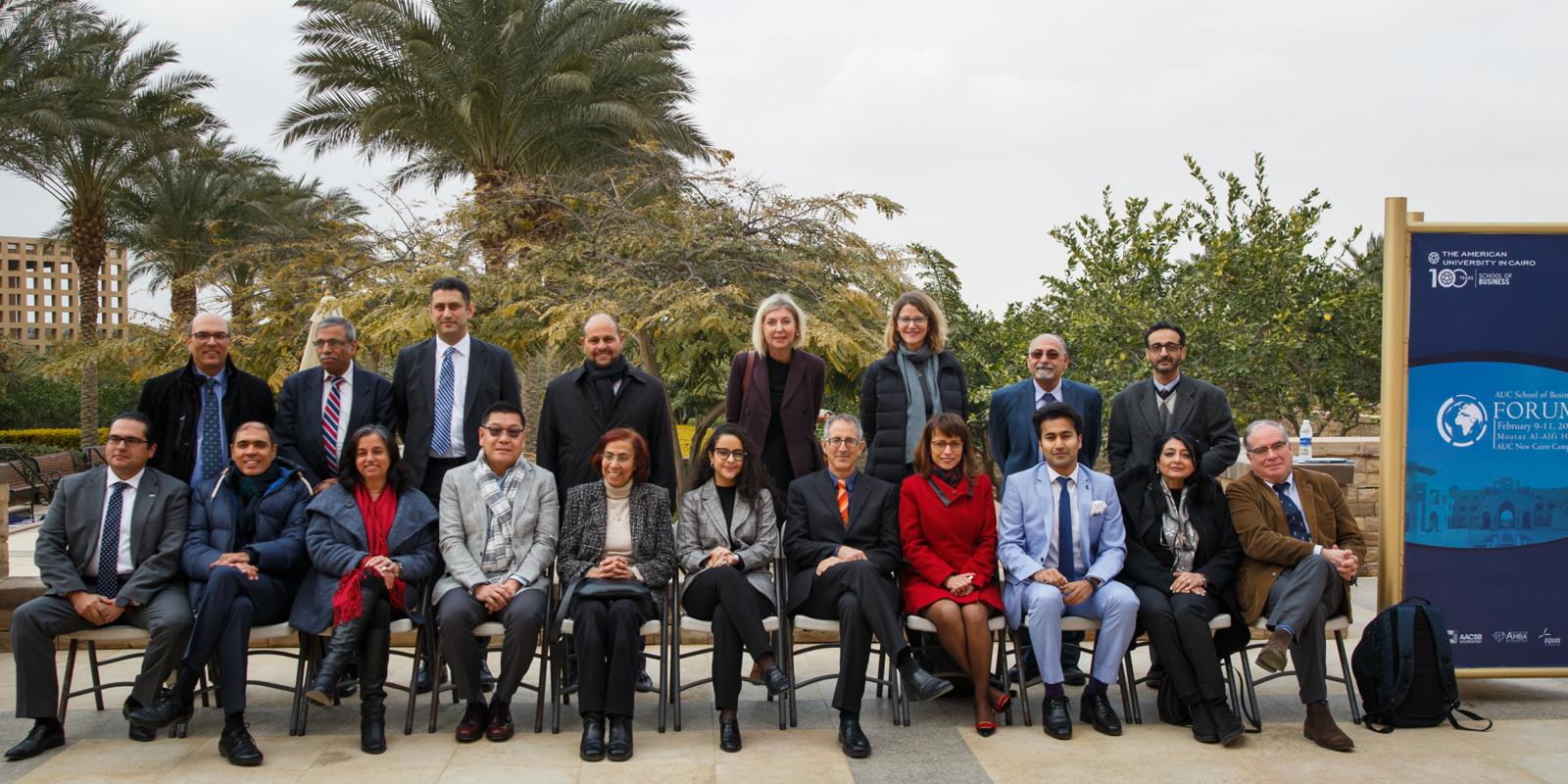
Inclusive Development and the Fourth Industrial Revolution in MENA
The AUC Business Forum, which took place between February 9-11, brought together a diverse group of renowned and distinguished scholars, practitioners from the business industry, as well as policymakers from Egypt, Africa, the Middle East and other parts of the world, to discuss timely and relevant issues in the world of business education.
The third roundtable on “Inclusive Development and the Fourth Industrial Revolution in MENA” was chaired by Nagla Rizk, professor of economics and founding director of the Access to Knowledge for Development Center, School of Business, The American University in Cairo; Utkarsh Amitabh, founder, Network Capital, USA; Leslie Chan, associate director, Center for Critical Development Studies, University of Toronto, Canada; Golestan (Sally) Radwan, minister’s advisor for artificial intelligence, Ministry of Communication and Information Technology, Egypt; and Ruhiya Seward, senior program officer, International Development Research Center, Canada.
Themed around inclusive development and the Fourth Industrial Revolution, this roundtable examined the opportunities and concerns on the topic, as well as the misconceptions and various viewpoints on the advanced technologies and their capabilities to transform long-standing industries.
Concerns included the notion that while new technologies and the digital transformation create the potential for improvement and open up many opportunities, it is also imperative that we be wary of these changes, as technology is not removed from its context. As such, many concerns such as the asymmetry of data ownership, the digital divide, unemployment and the overall demographics of the region, including marginalized groups, must be taken into consideration when discussing inclusive development.
On the other hand, the potential of such technologies was also thoroughly discussed, particularly for countries such as Egypt and India, which have the highest rates of internet penetration. Taking that into consideration, AI could be leveraged to solve crucial issues such as unemployment, inequality, and education.
Furthermore, on the global issues surrounding AI, it was argued that there are three levels to challenges. The first is the global perception of AI, mainly over-expectation or fear with regards to AI capabilities due to lack of awareness on its exact capabilities and limitations. The second is that societies are trying to solve 2020 problems with 1930s mentalities, arguing that economic paradigms are insufficient to truly address or anticipate what lies ahead with these technologies. Lastly, the final challenge is the capacity of exclusion and discrimination that such technologies can cause.
It was therefore recommended that the enthusiasm for technology should be tempered with being realistic and that sufficient research should be dedicated to addressing concerns revolving around the fourth industrial revolution, including data inequality, bias in machine learning, regulation of big tech companies, the automation of jobs, disparity in power, the importance of data literacy, and more. Overall, it was agreed that the way technological developments are taking place should be questioned, and that transparency is most certainly needed in the development of artificial intelligence, particularly with regards to data ownership.
It is worth mentioning that this roundtable coincided with the Access to Knowledge for Development (A2K4D)’s tenth anniversary. The center engages in interdisciplinary research through collaborations and partnerships with leading global and regional institutions on the role of knowledge, openness and digital technologies in promoting human development. Through research, dissemination of knowledge and global engagement, the center brings local issues to the forefront of global development debates. This roundtable was the latest of A2K4D’s efforts in research and activities on the Fourth Industrial Revolution and inclusive development in the Middle East and Africa (4IR MENA Initiative).
Find the full roundtable discussion here: https://www.youtube.com/watch?v=WkSqzWTKdUc
